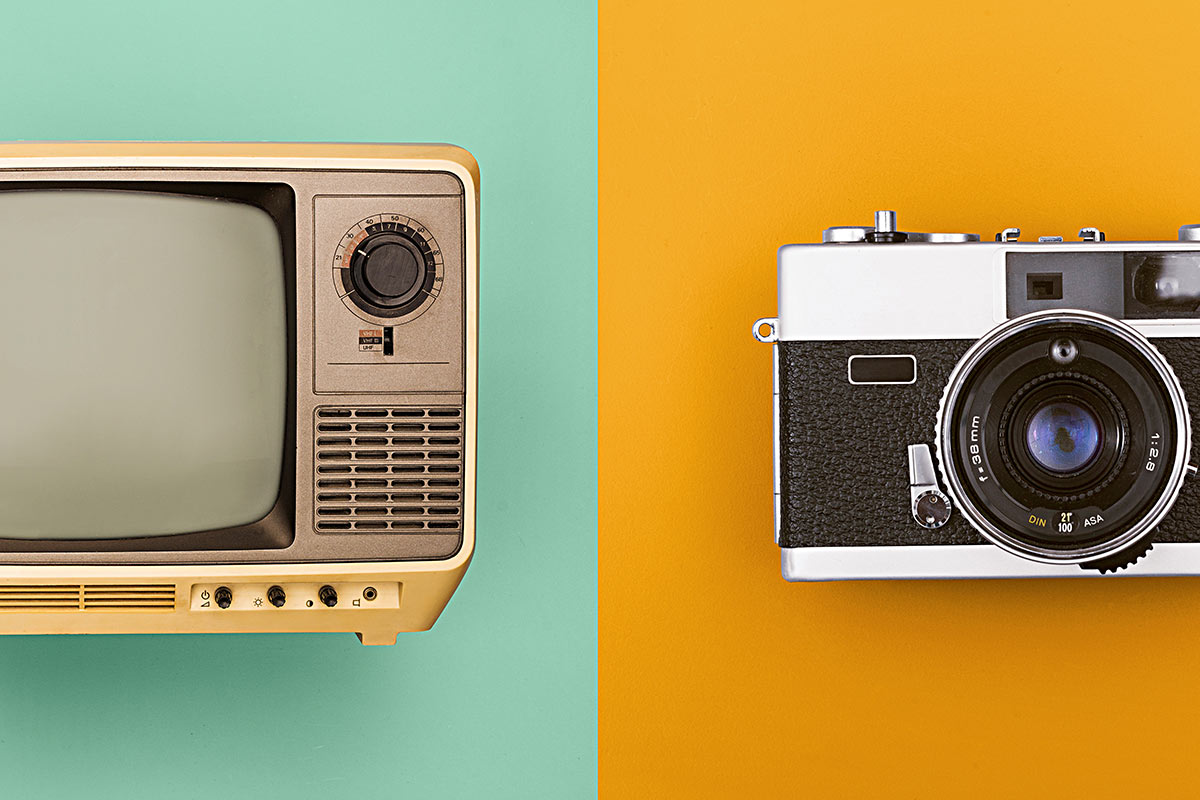
Tech has always been the future
I am still a technology optimist, but I have also become a technology realist, writes Sven Størmer Thaulow, Chief Data and Tecnology Officer in Schibsted. His interest in tech was awakened in his early years by his grandmother.
Most of us trace lines back to when we were children in order to better understand the people we have become. I have always been a tech optimist with an eye to how technology can improve our lives in the future. It all started when I was a kid in the 80s.
I first saw a computer in the computer room at the research institute where dad worked. It was a sharply lit room full of large machines with tape wheels moving back and forth. The room was full of noise, the air was dry, and a barely detectable breeze was in the air. There was much optimism about how these machines would be used to find answers to scientific problems which required large amounts of data to be solved, such as finding out how pollution spread in waterways. To an 8-year old boy, this was impressive – and not least thrilling.
Yet, when I think about what influenced me to become a tech optimist, the big machines are not the first thing that comes to mind – it is my grandmother. She lived in a flat in Oslo with grandad, who was a research scientist. Together they often traveled – especially to the US, where they had many friends in academia in Boston.
A lethal device
When grandma came home from the US she always brought new technology with her. I remember the electric bread knife with the two blades going back and forth – an innovative and lethal device (we were instructed to stay clear when Grandma was slicing bread). Then there was the electric jar opener, which – we were told – was developed in collaboration with Nasa. Totally awesome, but sadly not very useful. Yet Grandma was always incredibly optimistic about how technology would develop and what opportunities it would bring. Her unshakeable belief in new technology stayed with her until she died in her 90s.
Yet, technology optimists always meet sceptics. My mother was the sceptic in our family: video (VHS) did not belong under our roof – there was too much violence, with Bruce Lee and chainsaw massacres. No wonder then, that when grandma called from Boston in 1979 and wanted to get a personal computer – the next big thing – for “little Sven” this was flatly denied by my mother. But at least grandma managed to smuggle me in a Merlin, leading my interest in computers to blossom.
Now in 2019, technology optimism has been replaced by technology pessimism: crypto-currency – which was supposed to be a tool for good – has become a tool used by criminals to buy and sell drugs and stolen goods. Genes can be sequenced for USD 1,300, and we have genetic modification technologies we could only have dreamt of back when my grandmother wanted to get me that computer. Artificial intelligence – once considered a possible answer to many of humanity’s great challenges – is now seen by some as a threat.
Our responsibility to be wise
Technology develops constantly. Today, it is not just part of our surroundings – like an electric bread knife or two – but it permeates every aspect of our society and our daily lives. At the same time, legislation is lacking, unclear, or simply difficult for ordinary people to understand. In this landscape, more and more responsibility rests on us as individuals – both at work and at home. It is our responsibility to consider whether it is okay to give away our data or if we (as people who develop technology) want to use data for a certain purpose or not. Not least, it is our responsibility to be wise about using technology where we collect data about people: how do we explain to people in a clear and comprehensible way what their data is being used for? These are issues we must all think about, whether we work with technology or not. Let me give you some examples.
More and more homes are smart. You might not think about it, but if you have installed an alarm in your house that connects to a front door that uses a code and not a key, you are already facing lots of ethical issues. The lock on your door can record when people come and go. Should you use it to see when your spouse leaves or comes home? The technology is there – it is your choice.
You’re working at a genetic laboratory in a hospital. You know the patient whose DNA you are now scanning personally, and discover that there is a relatively high chance she will get an incurable disease in the future. Do you inform her? The technology is there – it is your choice.
You are working at a weapons factory and are developing semi-autonomous weapons. You discover that with facial recognition technology the system can find the targets on its own, and a soldier only has to press a trigger. Is this crossing the line? The technology is there – it is your choice.
You are working in Schibsted and realize that if you tweak the machine learning algorithm you can increase how much time the average user spends at Aftenposten and earn more money. You are concerned about “algorithmic bias” – that you can alter the algorithm to produce content that pushes you closer to an echo chamber. Should you use the algorithm? The technology is there – it is your choice.
Or perhaps you are like me, who has sent a sample to a big company to find out how much percent African, European or Neanderthal you are. Quite fun and not too pricey! But where did that data go? Maybe it can be used to determine your children’s insurance premium in future? The technology is there – it is your choice.
What is important to keep in mind is that the technology itself is not harmful. Whether or not it is harmful is determined by how we choose to use it. I am still a technology optimist, but I have also become a technology realist: everyone must use technology, whether we work in the technology industry or not – but we must be much more mindful of how we use it, and consider the ethical challenges we are faced with.
Technology scepticism is no way to go. I want to be like my grandmother who never ceased to be fascinated by technology. On one of her last days as a 97-year old she streamed National Public Radio and chatted to her old friend in Boston – on her laptop.

Sven Størmer Thaulow
Chief Data and Technology Officer
Years in Schibsted
0.5
My dream job as a child
Inventor